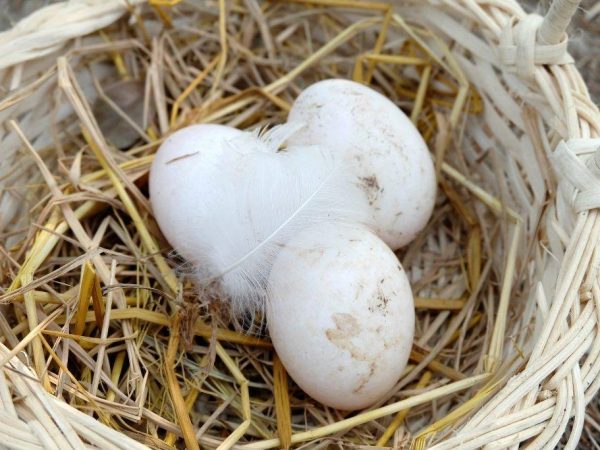Why Indo-girls don't rush at home
In Russia, it is becoming very popular to farm and breed ducks for yourself or for sale. Some poultry farmers, when problems arise, are primarily interested in what to do and why not a single Indoor is rushing. Yes, indeed, such a problem does not arise so rarely. To avoid such issues, it is necessary to create full-fledged conditions for keeping livestock and provide the birds with a nutritious diet.

Why Indo-girls don't rush
Failure to comply with the conditions for keeping in the poultry house and inadequate care of individuals are the main reasons why the duck does not rush in the spring. First of all, you need to observe the birds, take a closer look at their behavior. Next, you should determine what breed of ducks you have and whether they can be carried at all. The fact is, often in the poultry markets, unscrupulous sellers can sell wild birds or hybrid ones that are not purchased for breeding.
The main reasons for the lack of eggs in Indo-women
- improper feeding;
- non-compliance with the conditions of detention;
- fights and brawls in the poultry house.
A complete diet
For individuals to develop properly, you need to feed them a nutritious and varied diet. If the Indoor is not rushing, you may need to add more fresh herbs or hay to the diet. To maintain all the nutrients in the body, layers are given corn, eggshells and compound feed. Also, if an Indo-woman does not lay an egg, then a common reason for this is obesity.
It is very important to feed the birds in moderation, based on the age and size of the bird. Overfeeding with any product can lead to obesity, fat birds do not want to hatch eggs and move. Periodically, it is necessary to give Indo-women supplements with a vitamin-mineral complex or separately vitamins A, C, D. To prevent the accumulation of fat in individuals, the livestock should be released for an active walk in the fresh air.
Nest and wide roost
If the duck does not produce eggs, then you need to pay attention to its nest. Usually, as early as 6-8 months, Indo-women can lay eggs. If this does not happen, the conditions for keeping the birds need to be improved. The room may be too cold. Indoor women are thermophilic creatures, and if frost is typical for the region of their breeding, it is necessary to insulate the poultry house. The nest itself should be located near the wall. The width of the perch should be at least 20-30 cm. If this rule is not followed, then even because of such a trifle, pizzas may not lay eggs.
Please note that Indo-Ducks are very scrupulous in choosing a nest and its arrangement, so it is important to adhere to all the rules for installing perches and nests.
If the duck is not rushing, it is possible that the ratio of nests and birds is unequal, the birds simply do not have enough space. In this case, it is better to make nests in different places, the Indo-girls will choose the one suitable for themselves.
Indoor does not differ in egg production and when a construction is taking place next to the poultry house or is simply very noisy.
It should be borne in mind that the place where the Indoor has already rushed once should not be moved or re-equipped unnecessarily, after which the individuals may well leave the nest forever and begin to rush in places not intended for this.
Indoor behavior in the poultry house
If you keep different birds in the same room, then you need to take care that they do not fight or compete with each other. Older and more arrogant birds can peck at young animals. If the hen is pecked, then first of all she will refuse to hatch eggs. In a dirty and musty room, even calm individuals can fight among themselves. To prevent this from happening, the birds need fresh air, a spacious aviary and compliance with a light regime.
You cannot keep 10 birds on 3 m, it will be cramped for them. Each individual must have a personal space. If the weather permits, it is better to let the birds go for a walk. During the winter season, you can hang distracting rags or items around the house. It is important to keep the room clean and tidy. Every week, you need to carry out a general cleaning using disinfectants. It is also imperative to treat walls from dust and other bacteria.
Indoor molting
If the Indo-women are not rushing, then the reason may be that they have begun a molting period. This is especially true for those individuals who previously laid eggs, and then suddenly stopped. It is impossible to predict the period and time of molting, since everything here is very individual and depends on each specific individual. Basically, molt begins after each egg-laying. On average, it lasts about 2 months.
In some cases, the change of plumage may be delayed or, on the contrary, end much earlier, often it depends on the climate in the region and on the nutritional value of the diet. Even the length of daylight hours affects molt. If favorable conditions for living and laying eggs, as well as a warm climate and a good room, are observed, the molting process will accelerate. During this period, you should not worry about egg production, it is better to just wait a while, and everything will be restored.


